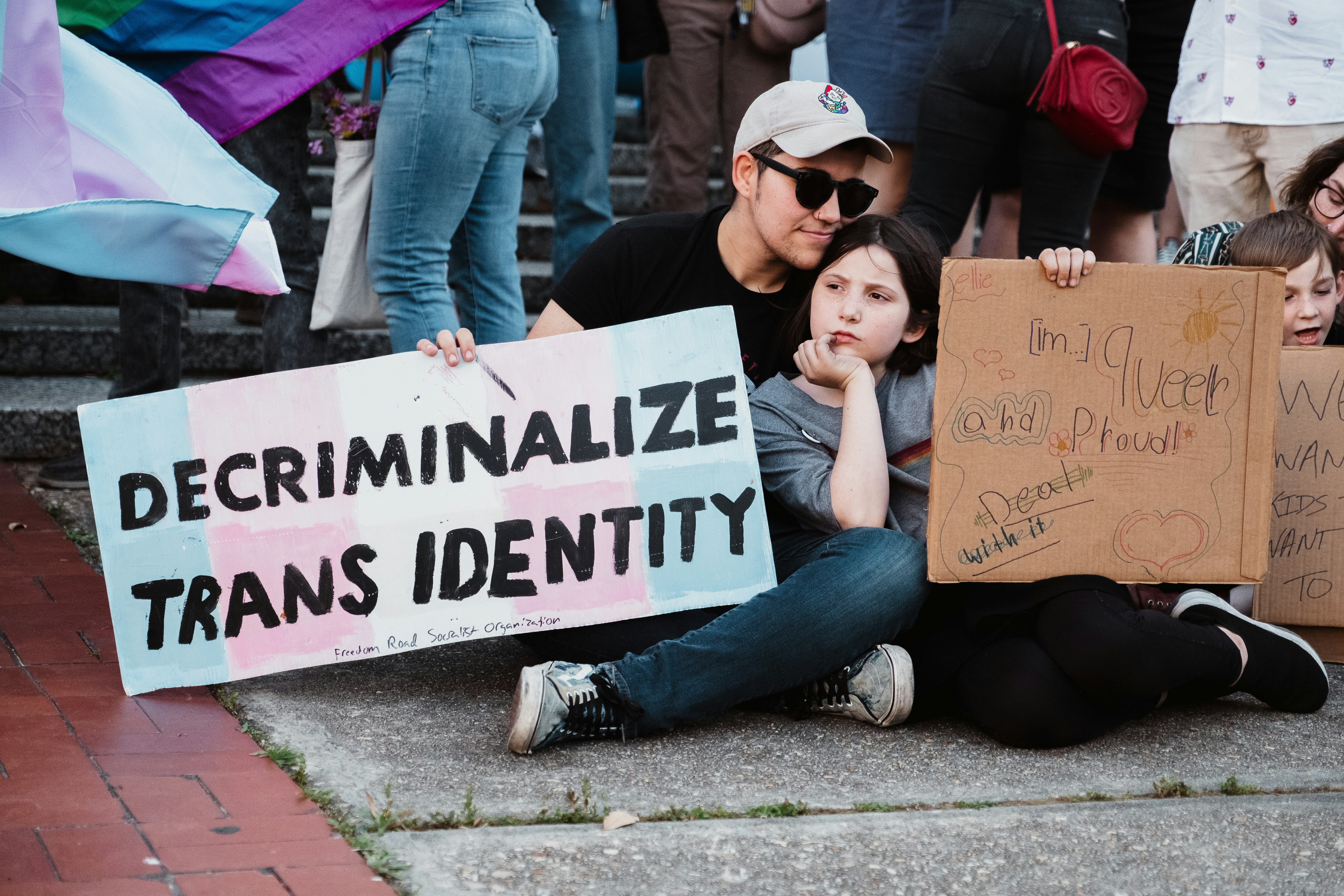Understanding TERF and GC Groups
Trans-Exclusionary Radical Feminism (TERF) and Gender Critical (GC) groups represent a distinct ideological segment within feminist discourse. Originating from feminist circles in the late 20th century, these groups assert that women’s rights and experiences are inseparable from biological sex, leading them to challenge the recognition and acceptance of transgender individuals. Their core belief is that gender, often perceived as a social construct, should be strictly viewed through the lens of biological determinism. This perspective results in the exclusion of transgender identities, which they regard as undermining the struggles faced by cisgender women.
TERF and GC groups utilize specific language and rhetoric that reflect their stance. They often frame the conversation around “women’s rights” but operate under a fundamentally narrow definition of what constitutes a woman. Their discourse tends to reinforce traditional gender roles and norms, rejecting self-identification narratives. This insistence on biological essentialism underscores their skepticism towards transgender rights and movements, including gender-affirming practices and policies.
Motivated by a desire to protect what they perceive as women’s interests, TERF and GC groups often position themselves against trans activism, portraying it as a threat to women’s spaces and rights. This positioning is contextualized within broader societal trends that frequently pit gender identity politics against feminist ideals. Furthermore, these groups capitalize on and exploit common misconceptions about gender identity, leading to widespread misinformation regarding trans individuals and their rights. Such misunderstandings foster an environment of exclusion and hostility towards those questioning their gender identity.
In sum, the ideologies of TERF and GC groups represent a minority viewpoint within feminism that overlooks the complexities of gender identity, aiming instead to uphold a binary understanding of gender that marginalizes transgender individuals. Their impact on societal conversations about gender cannot be understated, as it perpetuates misunderstanding and exclusion.
Psychological Manipulation Techniques Used by TERF and GC Groups
Psychological manipulation, particularly in the context of TERF (trans-exclusionary radical feminist) and GC (gender-critical) groups, encompasses a range of tactics aimed at influencing and controlling questioning trans individuals. Such manipulative practices not only aim to coerce individuals into adopting specific belief systems but also undermine their mental well-being, leaving profound psychological scars. One prominent technique is gaslighting, where individuals are made to doubt their own perceptions and feelings. Within these groups, questioning trans individuals may encounter narratives that deny their experiences, leading them to believe that their identities are invalid or fictitious.
Emotional manipulation is another frequent tactic used by TERF and GC organizations. They may exploit insecurities, fears, or vulnerabilities by creating an illusion of care or solidarity while, in reality, seeking to control the individual’s beliefs. For instance, they may frame acceptance of traditional gender norms as love or support, while portraying questioning one’s gender as misguided or harmful. This approach frequently results in feelings of isolation, confusion, and low self-esteem among affected individuals, as they grapple with an internal conflict between their authentic selves and the imposed beliefs of these groups.
Social isolation further compounds the impacts of these manipulative tactics. TERF and GC groups often encourage estrangement from supportive networks such as friends and family by presenting them as unsupportive or even harmful. This tactic mirrors methods employed by narcissists, where individuals are cut off from their emotional support systems. The absence of these vital connections can further exacerbate feelings of vulnerability and despair, effectively deepening the psychological impact of manipulation. As questioning trans individuals navigate these overwhelming emotional landscapes, the detrimental effects on their mental health become alarmingly evident, underlining the urgent need for awareness and support against such coercive tactics.
The Impact on Questioning Trans Individuals
Questioning trans individuals often find themselves navigating a complex landscape fraught with conflicting messages about gender identity. In particular, when exposed to the rhetoric propagated by TERF (trans-exclusionary radical feminist) and GC (gender critical) groups, these individuals may face significant psychological challenges. The terminology associated with these communities can be steeped in hostility towards transgender identities, creating an environment of fear and doubt that can deeply affect personal well-being.
The phenomenon known as ‘peaking’ refers to a moment of realization that may lead questioning individuals to reevaluate their gender identity. This process is frequently characterized by feelings of pressure and external manipulation, often sourced from disapproving ideologies. For many, this leads to distressing contemplation of detransition or a wrestling with suicidal thoughts, largely spurred by the fear of social rejection and a perceived loss of identity. The toxic narratives offered by these groups can exacerbate pre-existing anxieties and vulnerabilities, reinforcing feelings of inadequacy.
Personal stories shared by those who have encountered TERF and GC rhetoric reveal a narrative of confusion, emotional pain, and the longing for acceptance. Many individuals recount experiences of isolation and fear, often reporting that exposure to such ideologies triggered a crisis of identity. Testimonies illuminate the frightening reality that questioning individuals may spiral into mental health crises when they feel silenced or pressured to conform to narrow definitions of gender. As a result, the psychological toll is profound, leading to wider implications for their emotional stability and well-being.
Ultimately, the impacts of TERF and GC rhetoric on questioning trans individuals are far-reaching, contributing to a culture that often invalidates their experiences and identities. This manipulation not only impedes personal growth but can also lead to severe mental health challenges, highlighting the urgent need to address and counteract these damaging influences.
Strategies for Support and Resistance
The psychological manipulation employed by TERF and GC groups significantly impacts individuals who are questioning their gender identity. To combat these harmful tactics, it is essential for allies, mental health professionals, and trans advocates to employ effective strategies aimed at supporting these individuals. One of the primary strategies is the creation of safe spaces where questioning individuals can freely express their thoughts and feelings without fear of judgment or backlash. Such environments foster open dialogue, acceptance, and validation, crucial for those navigating their identities.
Promoting accurate information about gender identity is another vital approach. Misinformation and stereotypes often perpetuated by TERF and GC groups can lead to confusion and stigma among questioning individuals. Allies and mental health professionals should actively share evidenced-based resources that emphasize the validity of diverse gender identities. Workshops or seminars that focus on educating both the questioning individuals and their support networks about gender diversity can greatly enhance understanding and acceptance.
Offering emotional support is also imperative in this context. Active listening and empathetic engagement can help individuals articulate their feelings, reducing the isolation that many may experience. Support groups, whether online or in-person, enable these individuals to connect with others who may be facing similar challenges, fostering community resilience. It is beneficial to encourage individuals to explore their feelings without pressure to conform to traditional narratives surrounding gender. Each person’s journey is unique, and empowerment comes from recognizing and embracing this individuality.
In summary, through dedicated efforts to create safe spaces, disseminate accurate information, and provide emotional support, allies and professionals can resist the misleading narratives posed by TERF and GC groups. Such strategies will not only uplift questioning individuals but also cultivate acceptance and understanding within the broader community.









Leave a Reply
You must be logged in to post a comment.